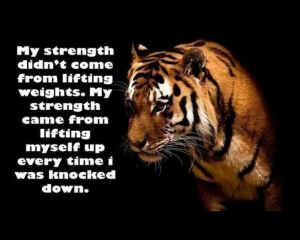 I reached a milestone yesterday: I finished a novel.
I reached a milestone yesterday: I finished a novel.
Let me explain. Yes, if you look on the sidebar, you’ll see I have novels for sale. And yes, they are finished novels. So what’s the big deal?
A little something called a slump. Or writer’s block. Take your choice.
A few years back, as I was writing my fourth novel about Lyle Villines (part of the Rural Empires setting with a working title of Hillbilly Hunt), I was shopping the novel Startup around to agents in New York. One of the submissions was to Aaron Priest, who rejected it, but didn’t send me a form rejection. He said that he loved the writing, but didn’t feel like anything happened for about the first one hundred pages.
Knowing it was against etiquette, I wrote back, asking if he would take another look (all while pointing out I knew it was against etiquette) if I rewrote that first part. The answer came from an assistant, who said she would read the rewrite, and if she judged it good enough, she’d forward it to Mr. Priest.
Fair enough. More than fair, in fact.
Long story short, I was rejected again. And I could see no way around it.
Now, to be fair, Mr. Priest did point out, in his original rejection notice, that this was his opinion only and another agent might well pick it up.
But I had stars in my eyes. Aaron Priest is Robert Crais’s agent—and Robert Crais is one of my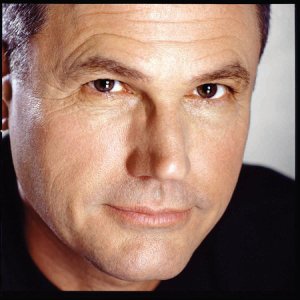 favorite authors. Who wouldn’t want to share an agent with one of your heros?
favorite authors. Who wouldn’t want to share an agent with one of your heros?
The second rejection did something to me, and in the ensuing years, writing has been hard to do. I know it’s mental, that I need to find a way around it. Add to that the fact the novel I finished is a mystery—my first—and that compounded everything. I’ve never written a mystery, and they require some finesse. You don’t want to give it away, but you don’t want it to be impossible for the reader to solve, either. It’s a fine line you have to walk.
I kept getting closer and closer, but I’d write a passage or two, then stop for months (or longer) before I went back to it. I had to drag the last quarter or more of the novel out kicking and screaming.
Then, last week, my mentor died. I wrote about him in my last post. I won’t revisit all that, but I will say this: when Dusty Richards died, he’d written over 160 novels.
Let that sink in for a minute. One hundred and sixty.
Dusty’s philosophy? Keep writing.
No matter what happens in your life, keep writing. You’re a writer, so write. It’s that simple. He cranked out three or four books a year that way. Yes, they were westerns and some of them were short. But not all of them. Not by any means.
His dying changed something in me, something more than what happens when you lose someone who means that much to you. I realized that all the people Dusty had ever encouraged to keep writing were his legacy. And that most definitely included me.
I had to make him proud of the time he’d invested in me and others. Yes, many of them no doubt gave up. Make no mistake, this is a tough business, and you have to grow a thick skin. You’ll see far more rejection than you will acceptance.
But, as Dusty admonished so many budding writers, keep writing. Why? Because it’s your dream. Not everyone is cut out for this. Heck, not everyone who writes should be doing it. Let’s be honest here. But many, possibly most, are. And even those who can’t write very well yet will improve if they fall in with the right people, people who give them constructive criticism and encouragement.
 And above all, keep writing.
And above all, keep writing.
Chances are, if you keep at it, you’ll run into a situation similar to mine, where you hit a wall and have trouble putting words on paper. Maybe life interferes. Maybe you get sent to Eastern Europe to spy on the Russians (if you do, mine that shit for stories). Maybe you have your first child. Maybe someone important to you dies. Maybe the rejection notices keep piling up and you wonder if it’s worth it to keep doing this.
Whatever the cause, for some reason, you can’t write. It doesn’t happen to everyone, but it happens to enough of us that there are endless articles about it and methods to deal with it.
The simplest solution is to do as Dusty told so many of us.
Keep writing.
I don’t care if it’s recipes, or crap you delete the next day, a frown of disgust on your face. And maybe you do it again the next day. And the next. And the next.
The point is, you’re doing something creative, and eventually it’ll turn into something you read, then nod to yourself and think, I’m keeping this.
It has taken me two, maybe three years to finish Animal Sacrifice, despite knowing, in general, how it was supposed to end (if your read this blog regularly, you’ll know I’m what’s called a pantser—I don’t outline my novels). I wrote some other things in between. I have a couple other novels started, and I managed to crank out a few short stories to keep the creative juices flowing at least to an extent.
But Animal Sacrifice sat there in its file, mocking me, it seemed. I knew what needed to happen, but getting the words out was all but impossible.
And yet, I kept writing.
Why?
Well, I have four finished novels prior to this. That’s proof I can do it. And it means I can do it more than once. Plus, I believe in this story, think it’s a good one, and it needs to see the light of day. Yes, there will be rewrites to turn it into a real mystery a toddler can’t solve in the first twenty pages, but the straight-line story is there, and it’s a good one. I say that without ego.
But I also saw my mentors, Dusty and Velda Brotherton—the two who started the writing group I’m a member of—turning out books, no matter what went on in their lives. Dusty spent a month in the hospital with pneumonia last spring.
He kept writing once he was out.
Velda has lost her husband, and her health has put her in a wheelchair.
She keeps writing.
That’s inspiration, folks. That’s drive.
That’s what we need to emulate.
I finished my novel, regardless of how hard it was to write. So go out there and finish yours, and  finish the one after that, and the one after that, ad infinitum.
finish the one after that, and the one after that, ad infinitum.
Keep writing.
Later,
Gil
 serious about the writing, ready to improve my craft. I can’t remember now how I heard about this particular group, at least not this time. I’d heard of it once before from a friend, but I guess I wasn’t ready for it yet, wasn’t ready to let strangers see my work.
serious about the writing, ready to improve my craft. I can’t remember now how I heard about this particular group, at least not this time. I’d heard of it once before from a friend, but I guess I wasn’t ready for it yet, wasn’t ready to let strangers see my work.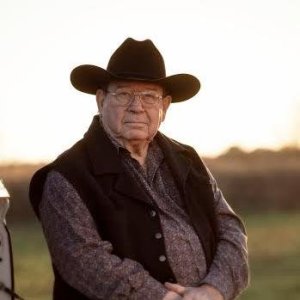 I’d known of Dusty since I was a teenager. I’d worked an FFA rodeo once in I think it was tenth grade, and Dusty was the announcer. He was a local celebrity even then, appearing on a regional morning show, doing the farm report. He’d been a biology teacher at my alma mater, Huntsville High School, as well as a field man for Tyson, traveling around to the chicken farms, helping them raise better chickens.
I’d known of Dusty since I was a teenager. I’d worked an FFA rodeo once in I think it was tenth grade, and Dusty was the announcer. He was a local celebrity even then, appearing on a regional morning show, doing the farm report. He’d been a biology teacher at my alma mater, Huntsville High School, as well as a field man for Tyson, traveling around to the chicken farms, helping them raise better chickens.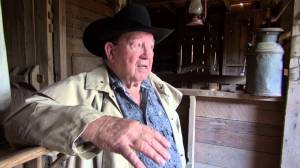 he could be, she was the only one who could control him, the only one who could rein him in. She was a quiet influence in his life, his bride of fifty-six years. While he was the center of attention, Pat would sit off to the side, reading her romance novels, the only kind I ever saw in her hands. Bodice rippers, as they’re known. She loved them, but I never really heard her talk about them.
he could be, she was the only one who could control him, the only one who could rein him in. She was a quiet influence in his life, his bride of fifty-six years. While he was the center of attention, Pat would sit off to the side, reading her romance novels, the only kind I ever saw in her hands. Bodice rippers, as they’re known. She loved them, but I never really heard her talk about them.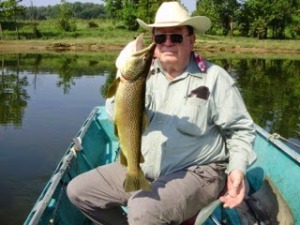 “You take this,” he said. “Use it for whatever you need. Don’t worry about paying me back for it.”
“You take this,” he said. “Use it for whatever you need. Don’t worry about paying me back for it.” my best to step into Dusty’s shoes and encourage new writers, do my best to help them set their feet on the path he helped so many travel, including me.
my best to step into Dusty’s shoes and encourage new writers, do my best to help them set their feet on the path he helped so many travel, including me.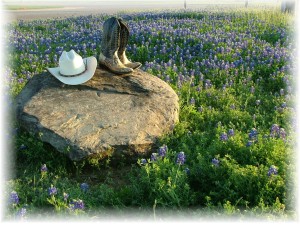 Hold a spot for me at that campfire. I want to hear more stories.
Hold a spot for me at that campfire. I want to hear more stories.